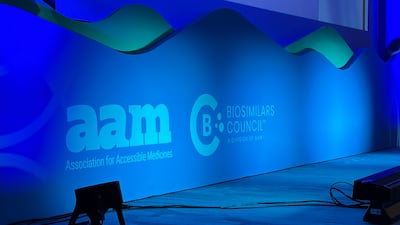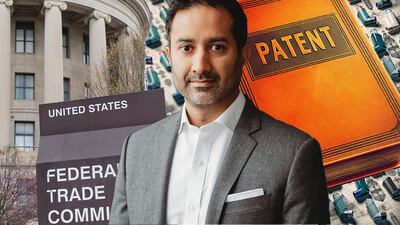Interviews
Before J&J’s former chief data scientist Najat Khan moved to Recursion, she talked to the Pink Sheet about how AI is transforming trials and driving collaboration between industry and regulators.
The payor’s multiyear plan to ditch the traditional PBM model and use multiple vendors has drawn a lot of skepticism from other actors in the health care system, but Blue Shield is hoping that it can help give policymakers some momentum, VP Lum tells the Pink Sheet.
As Hatch-Waxman celebrates its 40th anniversary, the chair of the US generic trade association talks about striking the right balance on supply and pricing, preventing shortages, and improving Medicare price negotiations.
In an interview, Sarah Emond talks about why she is ‘worried’ about cell and gene therapy, when ICER might revise its assessment of obesity drugs, and how CMS could build a reliable and transparent Medicare price negotiation program.
Artificial intelligence, real world evidence and point of care manufacturing are top priorities for the International Coalition of Medicines Regulatory Authorities, says the coalition’s chair, Emer Cooke.
Deputy director of the Bureau of Competition notes in an interview that the FTC focused on older products it felt should have more generic competition in its letters to companies citing improper patent listings. He says it is clear which drug-device combo patents should not be listed.
In a Pink Sheet interview Chief Scientist Bumpus discusses need to move diversity conversation up further in the pipeline. Better ‘organs on a chip’ should help.
The former US FDA commissioner turned venture CEO believes the biopharmaceutical industry can cure many of society’s ills, but firms need to talk to the agency more.
This second segment of a two-part article on a regional comparison of EU and US approaches to decentralized clinical trials highlights the differences between the two regions relating to the more practical aspects of setting up and running such studies.
In this regional comparison, regulatory experts at a US-based decentralized clinical trials (DCT) firm discuss their views on how the FDA’s draft DCT guideline compares with the pan-EU recommendation paper on this topic. This first segment of a two-part article dwells on the thinking behind why US and EU regulators tend to go down different paths.
In a Pink Sheet interview Emil Kakkis contends the agency’s recruitment challenges, high turnover rates and a lack of expertise on the diseases for which reviewers are evaluating drugs have created a disconnect between FDA leadership’s stated willingness to permit accelerated approval for gene therapy and what review divisions are doing on the ground.
Sanofi executives discuss ongoing efforts to make the monoclonal antibody available for the next RSV season and the impact it will have as the first prophylactic treatment for all infants. An FDA advisory committee is expected to discuss the biologics license application at a yet-to-be announced meeting.
The director of the agency’s patient-focused drug development program talks to the Pink Sheet about how the program has improved the development and evaluation of new drugs, initiatives underway, and plans to standardize and harmonize the process.













